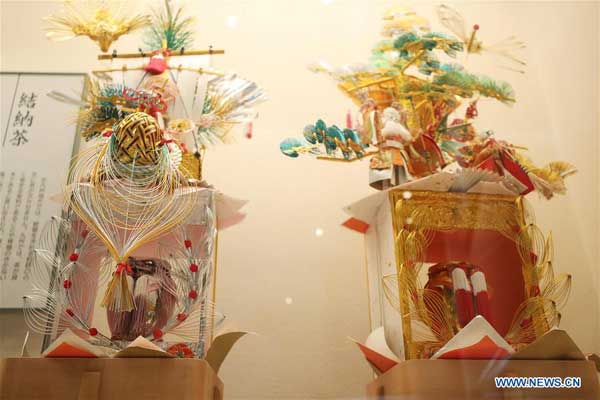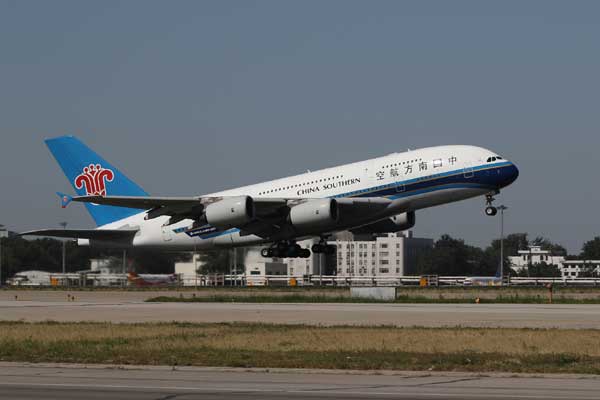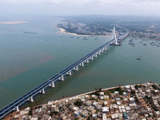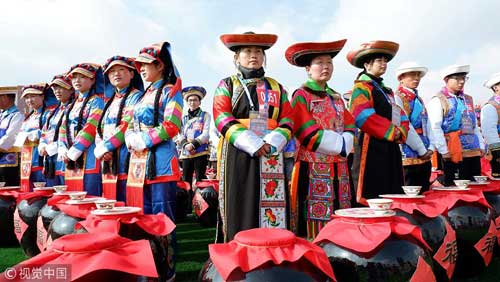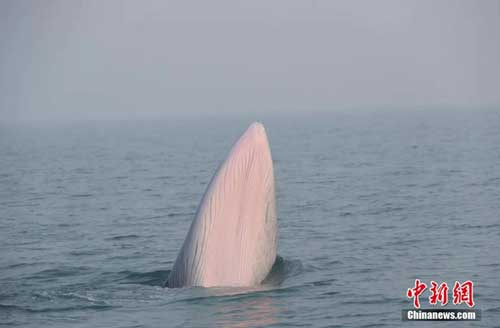After the nationwide War of Resistance began in China, communist parties, and progressive and peace-loving people around the world expressed their strong condemnation of the Japanese aggression and their firm support for China's resistance efforts.
The presidium of the Communist International's Executive Committee called on the proletariat and working people around the world to champion China's cause, speak out against imperialism, and take a stand against Japan by boycotting Japanese goods and opposing arms trade with Japan.
In Europe, the Central Committee of the Communist Party of Great Britain called on all parties and people of all classes to take action to participate in the movement to support China. Following this, a dozen or so organizations were established for providing support to China, including British United Aid to China. The people of Britain contributed in cash and kind, finding various ways to send medicines, clothes, and funds to China. In France, the France-China Friendship Society launched a campaign to support China by organizing conferences for the representatives of groups in support of China and opposed to Japanese aggression and anti-Japanese-aggression gatherings, which demanded that the French government work to stop Japanese aggression against China. Following the Lugou Bridge Incident, the Communist Party of Spain sent a telegram to the CPC, expressing its firm support for China's war of resistance.
In America, the Communist Party of the United States of America called on the people of America to offer as much help as possible to China, a call that received a warm response from Americans of all classes. The Communist Party of Canada also called for support for the Chinese resistance, and entrusted Dr. Norman Bethune, a renowned thoracic surgeon, to organize a medical team to travel to China to help.
In Asia, after the September 18th Incident in 1931, a number of people from Korea stepped up to organize an armed force to join the resistance. They engaged invading Japanese troops in bitter clashes in northeast China and over the border in Korea, making an important contribution to the fight against Japanese fascism. The Communist Party of Indochina headed by Ho Chi Minh, and the people of Vietnam offered strong support to China in its war of resistance. The people of the Philippines, Thailand, Malaya, Burma, the Dutch East Indies, and India united with Chinese communities in their countries, boycotted Japanese goods, and rejected cooperation with the Japanese, dealing a blow to Japan both politically and economically.
The Japanese Communist Party (JCP) and many peace-loving people in Japan also expressed their sympathy for, supported, and participated in the Chinese people's struggle against the aggression of Japanese fascists. JCP leader Sanzō Nosaka worked for some time in Yan'an, directly helping China in its war of resistance. A great number of well-known public figures, activists, and writers from Japan, including Wataru Kaji and his wife Sachiko Ikeda, Eiko Midorikawa, Kazuo Yamada and Susumu Narikura, lived in China for many years and joined the Chinese people in their struggle against Japanese aggression.
Many friends from around the world actively supported and joined in the Chinese people's war of resistance. Among them, Norman Bethune, who had travelled to China with a Canadian-US medical team, Dwarkanath Kotnis, a member of the Indian team providing medical assistance in China, and Hans Shippe, a journalist and member of the Communist Party of Germany, all gave their lives in the war of resistance. International reporters, including progressive American writer Agnes Smedley, travelled to China to report from the war zone, following the Eighth Route Army and the New Fourth Army, writing a great number of reports on the Chinese resistance. Rewi Alley from New Zealand, and US journalist Edgar Snow and his wife established the International Committee for the Promotion of Chinese Industrial Cooperatives (ICCIC), known as Gung Ho. It set up various cooperatives throughout China to help refugees and support the country in its protracted war of resistance. Gung Ho organizations in Britain, New Zealand, and Australia also offered assistance to China's Gung Ho organizations. The moving stories of international friends supporting the Chinese in their war of resistance will always be remembered by the people of China.
2. Assistance from the USSR, the US, and other countries
During the early years of China's nationwide resistance, the Soviet Union was one of China's main sources of support. Japan's full-scale war against China posed a serious threat to the Soviet Union, and thus prompted it to increase its assistance to China. As well as making its condemnation of Japan's acts of aggression known internationally, the Soviet Union also signed a treaty of mutual non-aggression with China, and offered significant material assistance to the country for its war of resistance.
The Soviet Union also sent a large number of military advisors and technical experts to China. Soviet generals M. I. Dratvin, A. I. Cherepanov, K. M. Kachanov and V. I. Chuikov served consecutive terms in China as chief military advisor to the Chinese government. They acted as contacts to facilitate the Soviet Union's military assistance to China, helped with military planning, and even played a role in commanding major battles.
After the war of resistance entered a stage of strategic stalemate, the US gradually increased its assistance to China. In December 1938, following a series of negotiations between the two countries, the US government for the first time announced it was to provide a loan of $25 million to China, which was to be used to purchase American materials and would be paid back in tung oil. In February 1939, the two sides formally signed the Tung Oil Loan Agreement, marking the beginning of American assistance to China during the war. In April, Roosevelt signed a directive to allow American ex-servicemen to join the American Volunteer Group (known as the "Flying Tigers") organized by Claire Lee Chennault to help the Chinese air force to fight the Japanese military.
After the start of the Pacific War, the US further increased its assistance to China. According to incomplete statistics, the US provided a total of $845.7 million in the form of loans and leases to China throughout the course of the war, all but $20 million of which took the form of grants. The US delivered arms, airplanes, tanks, auto vehicles, vessels, and other military supplies in total worth $520 million to China in support of its war of resistance.
In April 1938, France signed a contract with China on a loan for the Nanning-Zhennanguan Railway totaling 150 million francs and GBP£144,000, to which a further loan of 30 million francs was added in March 1939. In December 1939, China and France reached another agreement, this time for a loan of 480 million francs for a railway between Xufu and Kunming. However, as the tide of war began to take a turn for the worse for France, the two contracts were suspended. France maintained a positive attitude toward the efforts of the Chinese government to seek military assistance and cooperation, yet its own plans for military assistance and cooperation were suspended due to the defeat and surrender of France in 1940.
The support of the international community for China gave great encouragement to the Chinese people who had for many years been fighting the Japanese independently in the East. It boosted their morale and their confidence that they would prevail over Japanese fascism. At the same time, China kept fighting its protracted war of resistance, and in spite of the tremendously tough conditions in China at that time, provided a large amount of the agricultural, animal, and mineral products to the Soviet Union, the US, Britain, and France that they urgently needed for their war efforts, supporting, and helping others around the world in the fight against fascism.



 ][
][ 




